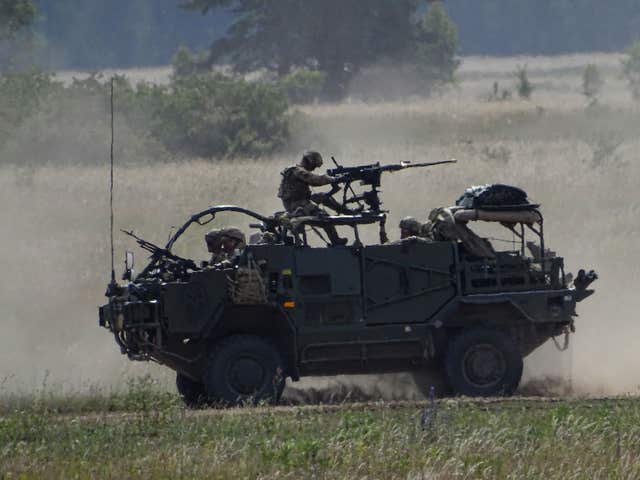MoD sanctioned after death of Army reservist during off-road training
Staff Sergeant John McKelvie, 51, of the Scottish and North Irish Yeomanry, was airlifted to hospital but died on February 4 2019.

The Ministry of Defence has been handed the maximum sanction by the Health and Safety Executive after a reservist died following the overturning of a military vehicle.
Staff Sergeant John McKelvie, 51, died in hospital after the Jackal he was driving rolled multiple times down a steep hill at Catterick Training Area in North Yorkshire on January 29 2019.
Staff Sgt McKelvie, of the Scottish and North Irish Yeomanry, was airlifted to hospital but died on February 4 2019.
He was taking part in off-road training with five other reservists, which included ascents and descents of a steep valley known as The Land of Nod, but while attempting an ascent, the Jackal lost traction and rolled backwards, throwing one of the course leaders from the vehicle.

North Yorkshire Police, the Royal Military Police and the Health and Safety Executive (HSE), carried out an investigation into the death of the motorcycle enthusiast, who was described by his sister Jacqueline Welsh as “outgoing” and “full of action”.
A Crown Censure – the most serious sanction possible for the MoD which is exempt from prosecution – was issued on Thursday by the HSE, calling for “robust” systems to prevent such incidents.
It warned there was a “failure of oversight” and that the course progressed too quickly, without trainees developing enough skills before taking on more significant off-road obstacles.
It also warned that risk assessments were not sufficient, and despite numerous previous “rollovers”, the Army had “failed to foresee what could go wrong”, while orders and directions had not been sufficiently adhered to.

The HSE found the training course involved hazardous activities which gave rise to the potential for the vehicle to roll, exposing those involved to risk.
The HSE said steps to control the dangers were not undertaken.
General Sir Roly Walker, on behalf of the British Army, said: “I apologise unreservedly for failing to maintain the safety standards rightly expected of the British Army. Staff Sergeant John McKelvie died because we didn’t do enough to protect him from the risk of death.
“The condolences I offer to John’s family and friends are heartfelt for a soldier lost that didn’t need to be lost in this way.
“We failed John and I am so sorry. We are committed to learning so this never happens to another family, another regiment, or another group of friends. I must also restore the confidence of others in the safety and supervision of high-risk training.
“The men and women who bravely commit to defending our country deserve the highest safety standards during their training and we will continue to strive to ensure that the lessons learned from John’s death help to make others safer now and in the future.”
Ms Welsh said: “John was a very outgoing person who loved spending time with his family.
“He was always there whenever you needed him. He loved his motorbike, sport and the outdoors. He was full of action.”
The MoD cannot be prosecuted in the same way as non-government bodies and a Crown Censure is the maximum sanction for a government body that HSE can bring.
There is no financial penalty associated with Crown Censure, but once accepted it is an official record of a failing to meet the standards set out in law.
HSE inspector Mark Slater said: “All training, including that which is required to be as realistic as possible, should be planned, risk assessed and executed in such a manner that it does not endanger those who are involved.
“Had the systems implemented by the Army been more robust, Sergeant McKelvie would probably still be alive today.”





